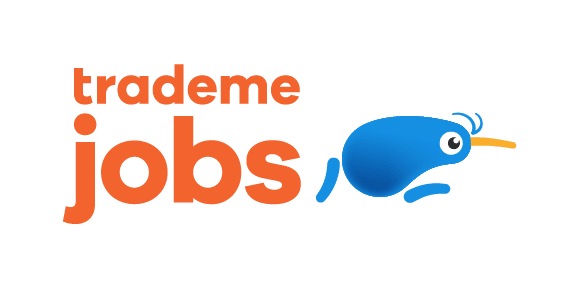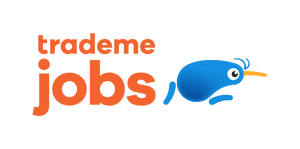Pasifika elders migrated to Aotearoa for a better life and greater work opportunities. But that hasn’t always translated into intergenerational wealth.
All week on The Spinoff we are delving into our relationship with the world of work in Aotearoa. For more Work Week stories, click here.
Many Pacific parents, grandparents and great-grandparents would have immigrated to Aotearoa as part of the post-war labour migration policy or of their own accord with a similar goal in mind: to have better opportunities for themselves and the families they would create in their new home away from home.
Anna Jane Edwards’ grandparents migrated from the Cook Islands as part of the unskilled labour pool, both meeting in Aotearoa and getting married in their early 20s. Edwards says she is a product of their dreams and aspirations to excel in New Zealand while holding on to their culture and heritage.
“My grandma worked at a Catholic hospital and had her name changed to Francesca because, like many islanders, people struggled to say her name. Both my grandparents faced the harsh realities of living in New Zealand, assimilating into a different culture while still identifying with being Cook Islanders,” she says.
“I spent some of my childhood in Rarotonga and that experience gave me deep respect and understanding of the village and communal life and how we all play a role in helping each other to thrive, which is the basis of Uptempo.”
Uptempo, where Edwards is the manager, is a learning space that is testing ways to grow intergenerational wealth and wellbeing for Pasifika people in Aotearoa, working in South and West Auckland with Pasifika families. It partners with the government to support workforce-wide changes that deliver clear pathways for Pasifika workers to higher paid jobs.
Edwards has held roles in health and local government over the past 15 years and has seen many Pasifika people who are third or fourth generation New Zealanders and are still in the same type of labour jobs as their elders who immigrated to Aotearoa.
“According to Stats NZ house total economic survey, the median net worth for Pasifika is $16,000 compared to Pākehā which is $151,000, so there’s no wealth being passed down within Pasifika families because we’re stuck in low-skilled, low-paying jobs and are only making enough to meet the immediate needs of families, leaving no opportunities to save, buy a home, buy shares and accumulate wealth,” she explains.
“The people in my neighbourhood of Māngere were some of the hardest hit financially from the floods earlier this year. They are also some of the least resilient financially in times of crisis. These are proud, hardworking people, working honest jobs for not enough pay.”
The financial hit is due to many people being unable to afford car insurance or contents insurance. “There’s no payout coming to fund a trip to a furniture store, and with rising inflation and the sky-high cost of living there aren’t any savings to call on. That means for most of the people I know, life just got a lot harder. There is no bouncing back.”
Edwards is on a mission to inform the Pasifika community that not all work is good work and that the quality workforce progression for Pasifika needs dedicated funding and focus.
What does that look like? Actively supporting Pasifika people into higher paid work who have been in their roles for a long time, have multiple jobs and/or are working 60-70 hour weeks for low pay.
That also means identifying sunrise industries (businesses in its infancy stage showing promise of a rapid boom) and supporting Pasifika into them.
“If financial security is a pathway to intergenerational wellbeing it’s not a path clearly marked for many people I know,” Edwards says.
“We need to support them into sunrise jobs because I think we have an opportunity to leapfrog Pasifika into industries that will enable them to grow their wealth and improve their wellbeing, but also be on the forefront of opportunities that meet climate crisis, social challenges and get paid well for it.
“These are the dreams and aspirations our elders wanted for us Pasifika people today.”
Case study: Datacom
Uptempo noticed that the tech sector is having a downturn and approached Datacom a couple of years ago to support a number of Pasifika women into the company. The tech sector in Aotearoa has a low number of Pasifika people, women in particular, entering their workforce – less than 3%.
Edwards says they helped women who have been stay-at-home mothers for a few years and re-entering the workforce or working in factories transitioning into their new roles at Datacom, which was “a very overwhelming experience”.
The women began in entry level roles on the minimum wage. Once they were in roles for about six months, they moved into the next phase, which was salesforce training. That department was already in high demand, but after finishing a seven-month part-time course, (and with a job guarantee from Datacom at the end of it), the women now had a salary starting at $85k.
“This is the type of rapid transformative outcome we’re after for our people,” Edwards says. “We’re looking for the very best opportunities for Pasifika to re-enter the workforce, so that they are able to grow that intergenerational wealth.” That means, she says, that employers must take some responsibility to change how they hire and practise “to get the very best out of Pacific peoples as they come into the workplace.”
For Edwards, the goal is simple – increasing household incomes to benefit everyone, especially children. “By supporting one Pasifika person, we are supporting everyone in the household”, which means working with families who have six members to as many as 19.
“We have to unlock all of the potential that we have as Pasifika people when it comes to contributing to the future of Aotearoa,” she says. “Our people don’t actually want a handout. What we’re hearing every day from the families we are working with is that they want access to sustainable opportunities to not only better their aiga or family, but the whole community.” she says.
This is Public Interest Journalism funded through NZ On Air.



